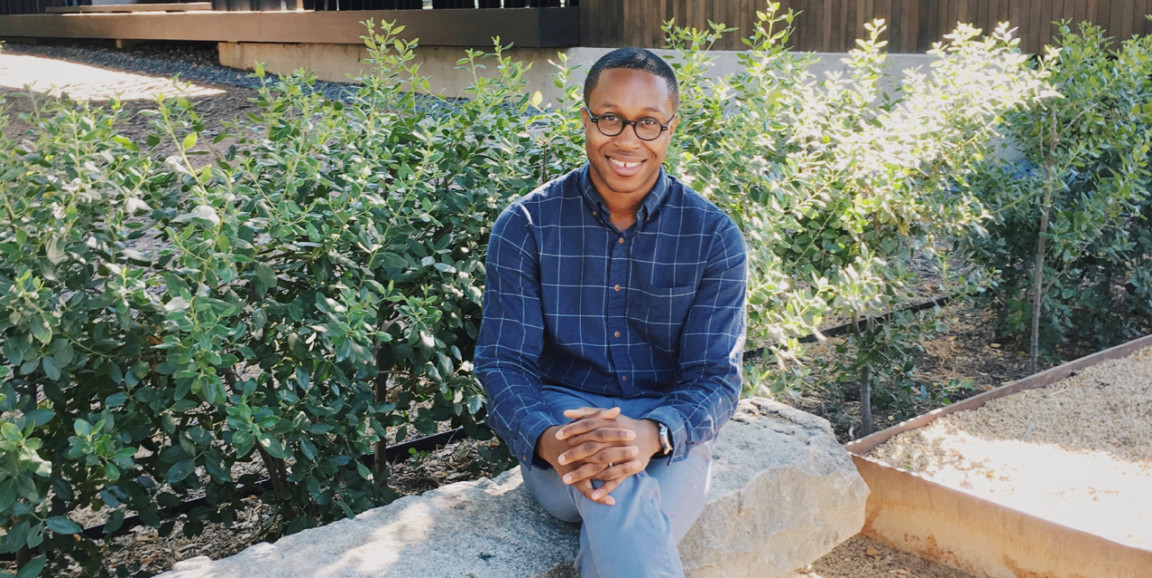Malcolm Chelliah is a sixth-year Stanford MD/MBA student. He's busy: He hopes to match with a dermatology residency this month and is wrapping up his studies at the Graduate School of Business. I spoke with him to learn more.
Where are you from?
I'm from Cleveland, Ohio, born and raised there until 16, then moved to Atlanta. I'm first generation to go to college, let alone graduate and medical school. Inner-city childhood was difficult, but I was also very fortunate that my mom prioritized certain things, like making sure the utilities were on so I could study at night. It didn't feel as bad as people make it out to be, especially when there was a sense of community where we were all going through the same things together.
What's it like pursuing both an MD and MBA?
It's definitely been challenging. But the good thing is that for the most part, you're never doing both things at the same time.
The most difficult part was starting the MBA program. The format was completely different than what I was used to. In medical school, for the most part, class is optional.
In business school however, class is required. You're also expected to come prepared and challenge the viewpoints of classmates based on your own personal intuition and experience in the industry. You're also in classes with very diverse people, from untraditional backgrounds. It's amazing to learn how to speak with and learn from people from all walks of life.
Why did you decide to pursue a MD/MBA?
I always liked science as a kid, and always have been good interacting with people. So, when considering careers back in high school, I thought medical school would open a lot of doors for me.
Then, there was the business side. I looked at a lot of health care systems, like Intermountain Health and Mayo Clinic, which deal with very homogenous patient populations, but do it very well. So I asked myself, are there takeaways I can take from those groups that I can bring back to communities like where I grew up?
Can you describe how it feels to reconcile your life at Stanford with your background?
Being here at Stanford, you're suddenly speaking differently and acting differently; the way you occupy your time is different and you have all this new knowledge.
Right now, I feel more Stanford than I do Cleveland. So, the question becomes, do I stay in these Stanford-esque environments with like-minded people, or do I take what I've learned back to underprivileged communities like where I grew up in. And if I do that, will I even be able to relate to them?
What are the biggest challenges in your field right now?
I think the challenge that I'm passionate about addressing is health care disparities in dermatology and underrepresentation of skin of color. Specifically, the way the reimbursement system is set up is flawed. It's primarily designed for fairer skin patients who have a different set of problems and the way the billing codes are written, dermatologists treating darker skin patients are reimbursed less for seeing them on average.
What is your ultimate career goal?
I see myself becoming a dermatology department chair, especially in an urban, underserved environment. If I see thousands of patients a year, and nearly half of those patients are Medicaid patients, and I see the issues they're facing, I can then show policymakers what their constituents are dealing with, and get them the best care possible.
I'd also like to play a role in increasing marginalized population's use of telemedicine.
How do you unwind?
I'm really into interior design! I love designing my home, rearranging things and getting inspiration from sources like my Instagram -- which is 90 percent interior designers. I also have software that lets me design on my computer.
Also, I enjoy hosting dinners in my home. Having a space where people feel comfortable, and we can all play board games, chat, and I get to cook!
What are you reading now and why?
Becoming by Michelle Obama. Hands down -- best book ever. I feel like in my own life, my husband and I have a lot of dreams and things we want to achieve, and both coming from humble beginnings, it's inspiring to hear her story.
What was the best trip you've ever taken, and why?
When I got engaged, my husband, who's Sri Lankan, promised to take me to Sri Lanka. So, over Thanksgiving break, we finally went. Not only did I get to see his home country, everything about Sri Lanka was absolutely breathtaking.
What advice would you give to people with big dreams?
You have to be persistent. You can't let little things throw you off guard.
Photo courtesy of Malcolm Chelliah




